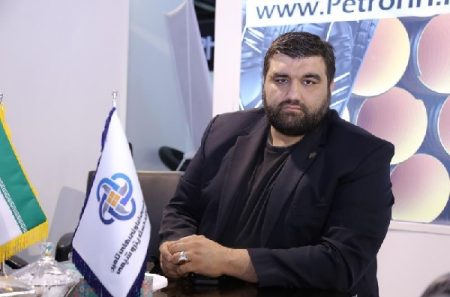 The National Union of Downstream Industry’s Suppliers and Distributors Cooperatives (NCUP) has been a very active union among all other more than 23 very older associations and unions for plastics industry in Iran. Mr. Hossein Dourr, the top executive body of this union at the roll of NCUP Secretariat and the founder of the “Petronn” website is usually faced with reporters to answer how would have he been able to improve the share of the union from 0.21% of petrochemicals to about 21% just in two years of his activity. The following is the IRNA report of his interview that was broadcasted today from The Radio Economy station in Tehran.
The National Union of Downstream Industry’s Suppliers and Distributors Cooperatives (NCUP) has been a very active union among all other more than 23 very older associations and unions for plastics industry in Iran. Mr. Hossein Dourr, the top executive body of this union at the roll of NCUP Secretariat and the founder of the “Petronn” website is usually faced with reporters to answer how would have he been able to improve the share of the union from 0.21% of petrochemicals to about 21% just in two years of his activity. The following is the IRNA report of his interview that was broadcasted today from The Radio Economy station in Tehran.
Hussein Dour in a conversation on the export situation of the petrochemical products, said: “The downstream sector of the petrochemical industry could have a huge share in the economy of the country; About 3.1 billion dollars were exported in 1394 (2015) only in the rubber and plastics sector, accounting for a significant portion of non-oil exports of the country.”
Secretary of the NCUP said that: “Various export markets are located in the downstream sector of the country’s petrochemical industry, but the countries of the region and the major neighbors are Iran’s export markets.
“According to the Ministry of Industry, by the end of 1394, about 32% of the Iraqi polymer and rubber market and 70% of the Afghan market were available to the Iranian exporters” Hussein Dourr added.
He also notified :”Other neighboring countries like Tajikistan, Armenia, Turkmenistan and Afghanistan are also among our target markets,” “There are steady markets in Europe, but the total exports to the European Union are less than $ 100 million,” said the NCUP secretary.
“We now export to countries such as Germany, France, Spain, Britain and Eastern Europe, we even export trash bins to the UK,” said the petrochemical industry activist.
He spoke about the problems facing the petrochemical downstream’s export sector, saying that we have worked poorly in some sectors, which will gradually lose some markets.”
Hossein Dourr also said: “Our plastics products are competitive in global markets, but our sale methods are very basic and in cash.”
“We have to sell our products on the global market in cash, and we can’t use many of the models of bank sales,” he said, explaining that our major problems are banking problems.
The activist in the petrochemical industry, arguing that if the banks are accompanied, we could be strong in the global markets, added: “I think that about 90 percent of the bank’s problems are related to the bank’s infrastructures and maybe 10 percent is rooted in there duly limitations in respect of the sanctions.
“I have to ask the banks what services have been given to the exporting sector of our country’s products? and, may say that, I have never heard of a credit line for the producers within the range of the petrochemical downstream industries.” He added.
During the first five months of this year, about 22.6 million tons of petrochemicals have been produced in the country, according to IRNA, which is expected to be completed by the end of this year by registering a new production record for petrochemicals due to the completion of the major repairs of most of the petrochemical complexes, which increases Iran petrochemicals by about 56 to 58 million tons.












